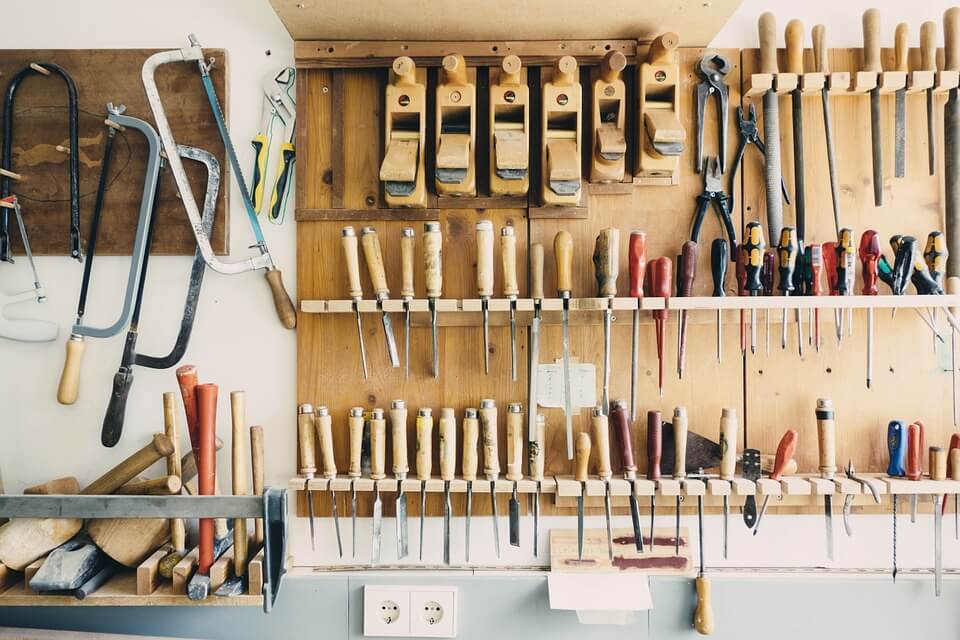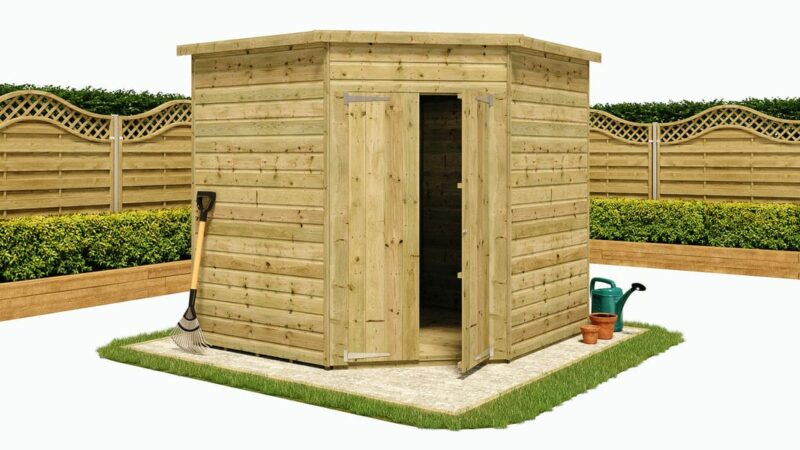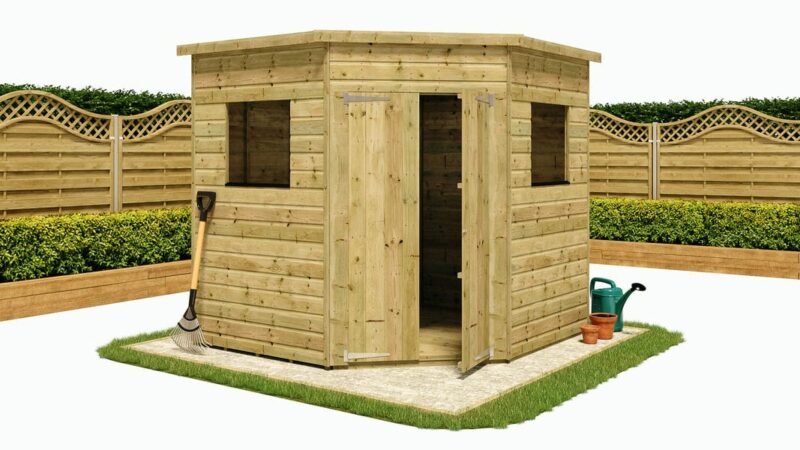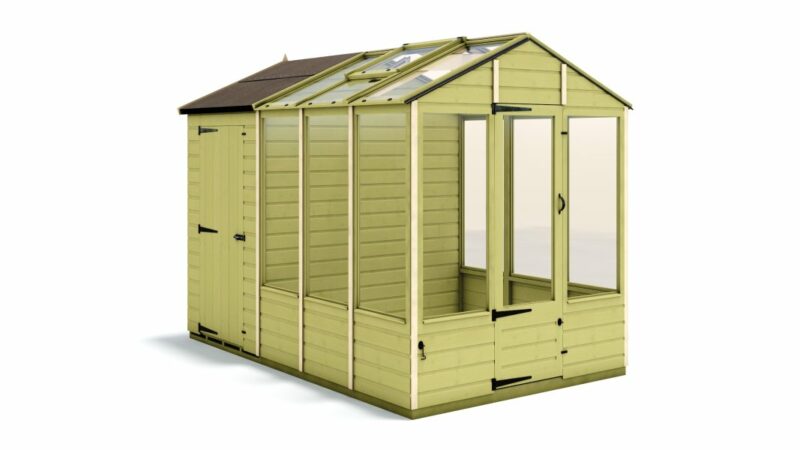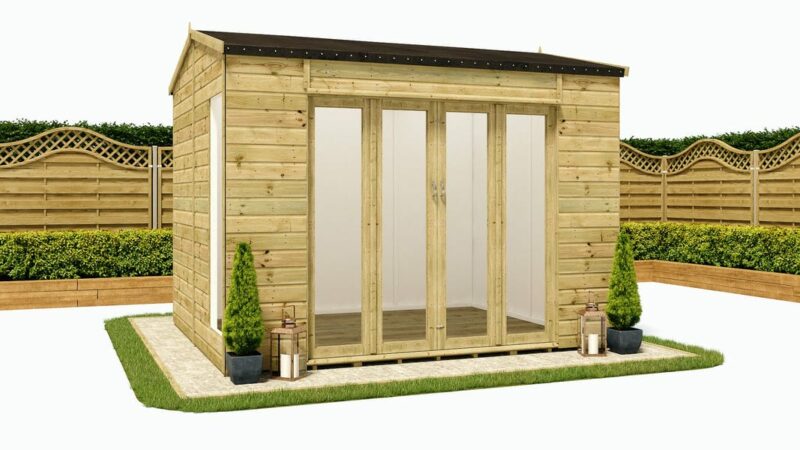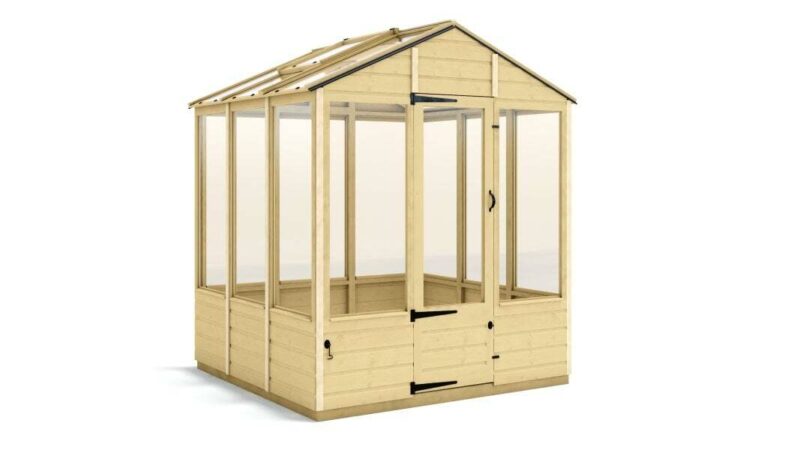If you’re a tinkerer than you know you need your own space to work on projects. One place where this can be done is in your own private garden workshop. The intimate setting of a garden is relaxing, allowing you to focus on your work and enjoy the serenity of nature.
If you’re in need of a workshop to accomplish all of your DIY projects, then we have the perfect guide for you. You’ll learn what considerations you should keep in mind before you begin which will allow you to set realistic expectations and keep you on track. With that being said let’s jump right in.
1) Consider the tools you’ll be using in your workshop
Before you begin, you need to consider the tools you intend on using in your workshop. If you intend on using power tools, for example, you’ll need to run electricity to your building (we’ll talk more about that a bit later on). You will also need to think about the amount of space you’ll need to store your tools.
Next, consider the budget you have at your disposal. Think about the cost of building/purchasing your garden workshop in addition to the amount you’ll be spending on tools. Will you have enough to cover everything you need?
Power tools will certainly make your projects easier to accomplish, but they’ll cost you significantly more than purchasing hand tools. On the other hand, hand tools will increase the amount of time you’ll spend on each project. As you can see, your overall budget is essential because it will determine which tools you can buy right away. If you’re working with a tight budget, make a list of the tools you absolutely need ASAP and leave the rest for later.
2) Electricity
As mentioned, you’ll want to consider adding electricity to your garden workshop if you intend to use devices and tools that require electrical power. You also have to consider lighting. Do you intend on only working in your garden workshop during the day? How will you have light on cloudy days? More likely than not you’ll need a source of electricity to operate comfortably in your workshop.
With that being said, you have to consider how you intend on running electricity to your garden building. One option is to run a cable under your lawn. To save money you can dig the hole yourself (recommended only if you know what you’re doing), but you’ll have to hire an electrician to run the cabling. There are multiple options on how you can run electric to your garden workshop. Refer to a professional to consider your options and pricing.
3) Storage
Think about the amount of space you need in your garden workshop. Do you need a big area to move around in as you work, or can you get away with a smaller workspace? Also consider how much space you need for storing tools and material. Think about installing drawers to store screws and smaller items to avoid cluttering your workshop unnecessarily.
One great way to save space is to invest in a rolling work shelf. This will allow you to have a mobile storage option that you can move with you (or away from you) when convenient. Pegboards are another good option to consider. You can easily hang up tools such as power drills and hammers which will keep you that much more organised and efficient.
4) Worktops
You need to consider the ideal surfaces for your workshop (wood, metal, etc) and how wide these surfaces need to be. You don’t want your worktops to be so wide you’ll have barely enough room to move around your workshop, but you also don’t want them to be so small that just a few tools will end up cluttering your precious workspace.
Another consideration to keep in mind is the sturdiness of your worktop. If you plan on doing a lot of hammering, you’ll need a sturdy surface that can withstand significant abuse. Sturdy wooden surfaces are often the most popular option because they can pretty much take any beating you give them.
5) Safety
For the sake of safety, you need to consider the type of items you intend on storing in your workshop. For example, dangerous chemicals (such as oils and solvents) need to be kept in a place where they can’t be easily knocked over. Take extra care if you intend on storing flammable liquids. If your work produces sparks you may inadvertently cause a catastrophic accident!
Also give consideration to any items in your workshop that may be weather sensitive. As the seasons change the temperature within your workshop will change as well. Will you be storing anything in your workshop that’s susceptible to prolonged exposure to heat and sunlight? What about prolonged exposure to cold temperatures? Your personal safety, as well as the safety of the tools and other objects you’ll be storing within your garden workshop, should be among your top priorities.
6) Security
Don’t fall victim to the idea that your garden workshop is secure just because it’s tucked away in your backyard. Bad guys rely upon this line of thinking which allows them to easily hop your gate and make off with your precious (and expensive) tools in the dead of night with little difficulty on their end. Sheds, workshops, and garden buildings in general attract thieves like bees to honey, so you need to install security features to keep your tools and other equipment safe.
Mounting powerful motion lights to the front of your garden workshop is an excellent deterrent against thieves. Many thieves will scatter the moment they’re hit by the blinding light. Bad guys are on the lookout for easy marks, not a fight.
Another simple way to secure your shed is to buy a padlock. Even if the bad guy somehow defeats your motion sensor lights, they’ll still have to work extra hard to get inside your garden workshop and hopefully by then you’ll have been alerted to their presence allowing you time to call the police. Frankly, just the sight of a secure workshop will scare off most undetermined thieves.
Setting up the perfect garden workshop
Once your garden workshop is set up, you’ll be happy you took the time to consider your plan of attack before taking action. Garden workshops provide the perfect workspace to accomplish your personal projects, and you’ll feel a real sense of accomplishment once you’ve built your own.
If you don’t have the woodworking know how (or simply wish to save time) you can turn to Project Timber for all of your garden workshop needs. Project Timber offers a wide variety of garden buildings of all sizes which gives you plenty of options to choose from. If you’re interested in owning a professionally built garden workshop contact Project Timber today.
Featured Image Credit: Free-Photos / Pixabay



